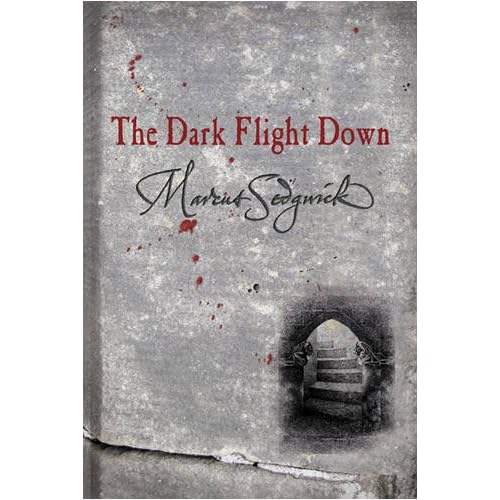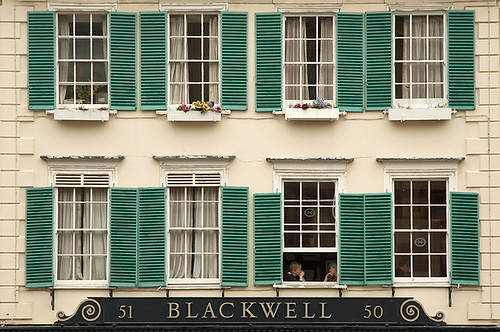 Having been laid low by illness for a couple of days, I've had cause to be especially grateful to reading as a palliative to discomfort and anxiety. The pair of novels in question are The Book of Dead Days and The Dark Flight Down, by Marcus Sedgwick. These are stories for older younger persons (I get fed up of writing teenage fiction) set in the classically gothic world of a vast, un-named, largely pre-technological city through the dark streets of which is played out a plot involving ambition, greed, explotation, love and magic. I first noticed the books in my local bookshop, was attracted by the covers and design, and eventually found them in and borrowed them from my equally local library. The thrill of being able to walk into a building and then out again, having acquired a bagful of reading without paying at the point of service, remains delightfully undiluted.
Having been laid low by illness for a couple of days, I've had cause to be especially grateful to reading as a palliative to discomfort and anxiety. The pair of novels in question are The Book of Dead Days and The Dark Flight Down, by Marcus Sedgwick. These are stories for older younger persons (I get fed up of writing teenage fiction) set in the classically gothic world of a vast, un-named, largely pre-technological city through the dark streets of which is played out a plot involving ambition, greed, explotation, love and magic. I first noticed the books in my local bookshop, was attracted by the covers and design, and eventually found them in and borrowed them from my equally local library. The thrill of being able to walk into a building and then out again, having acquired a bagful of reading without paying at the point of service, remains delightfully undiluted.The books have left me with one question, however, namely what is the term for a pair of linked novels. I'm settling for biology, and hoping mine will rectify itself soon.
David








